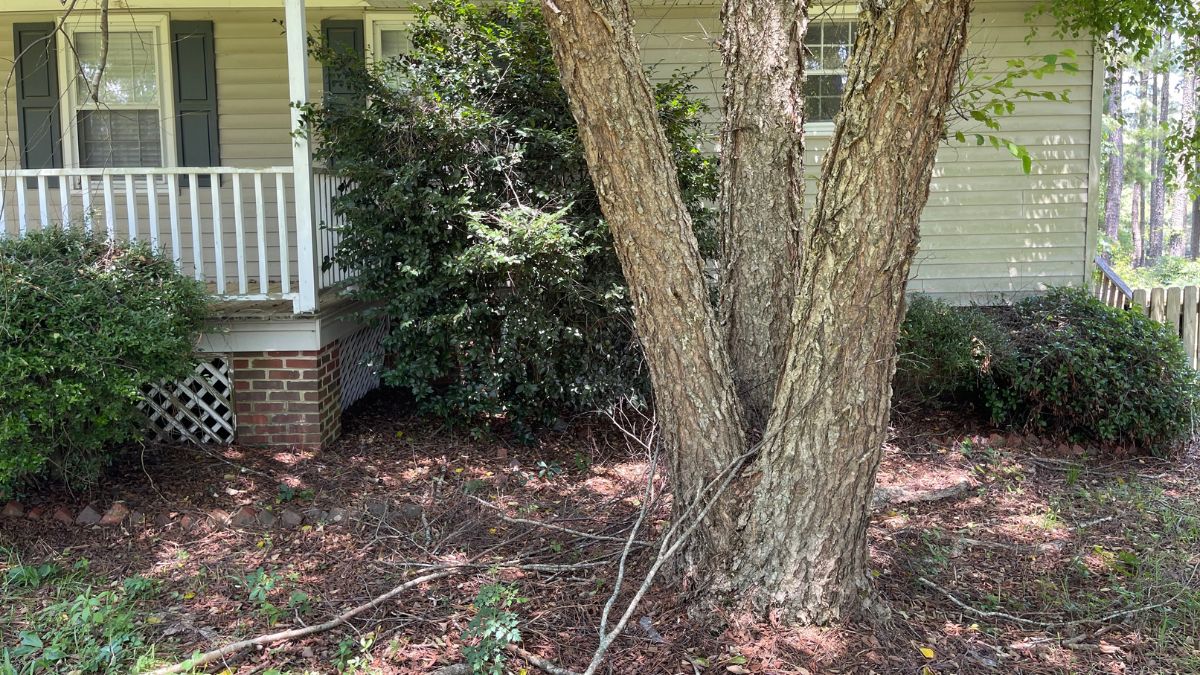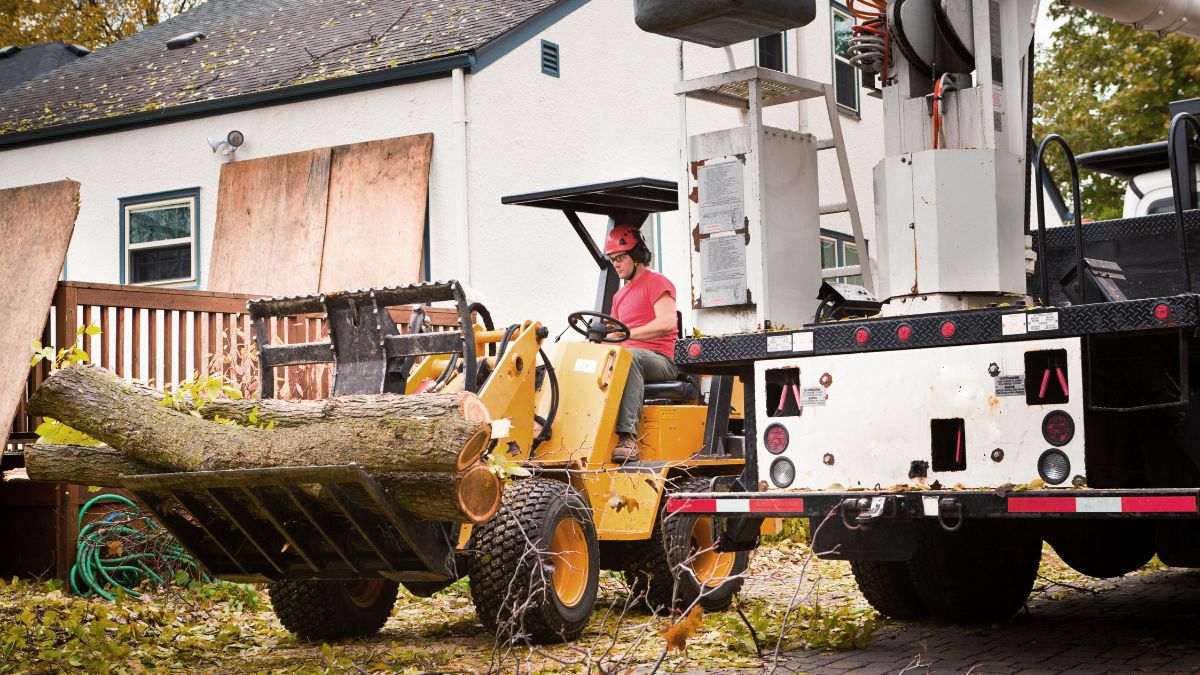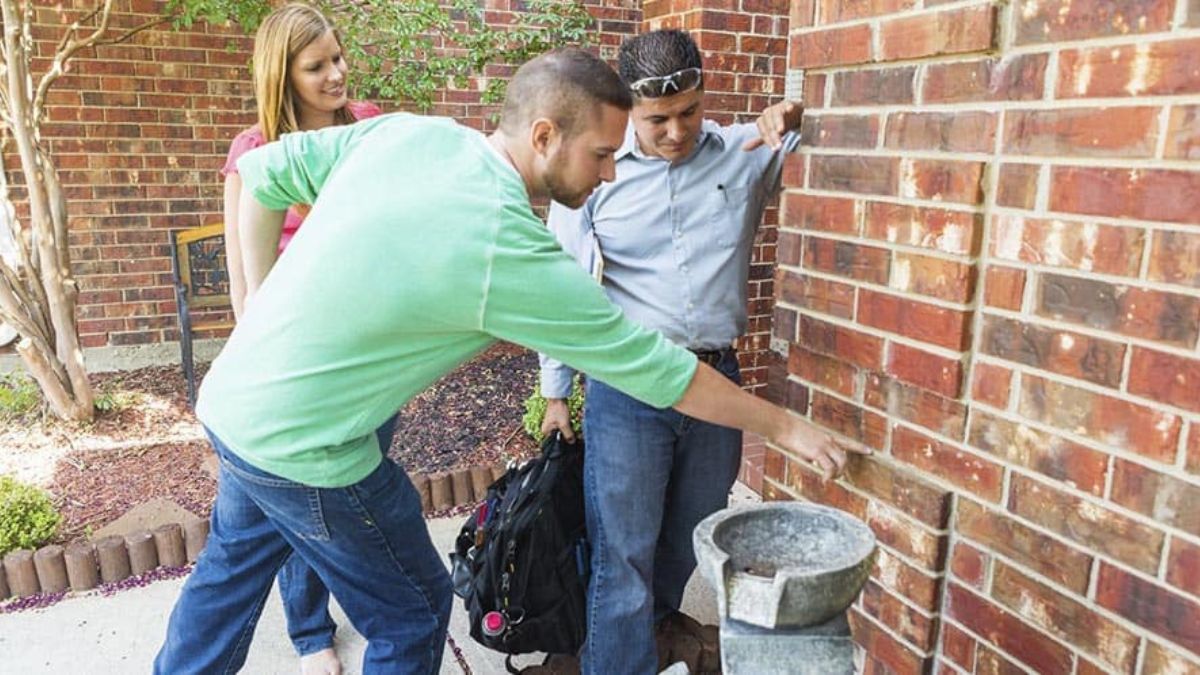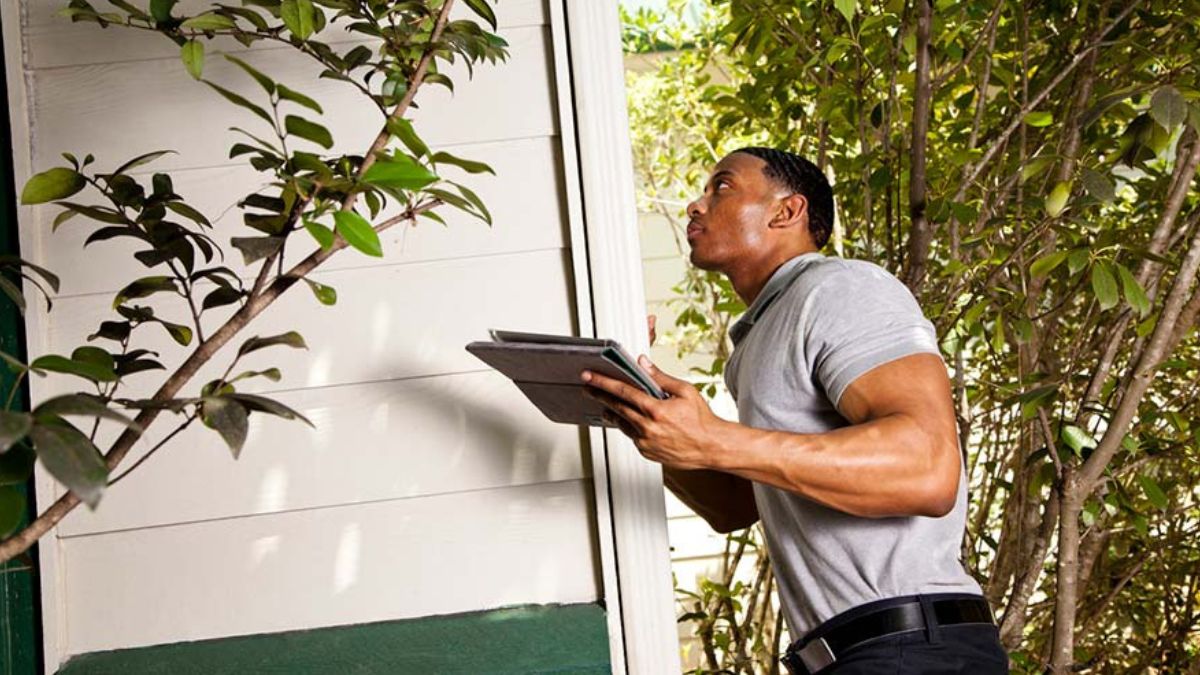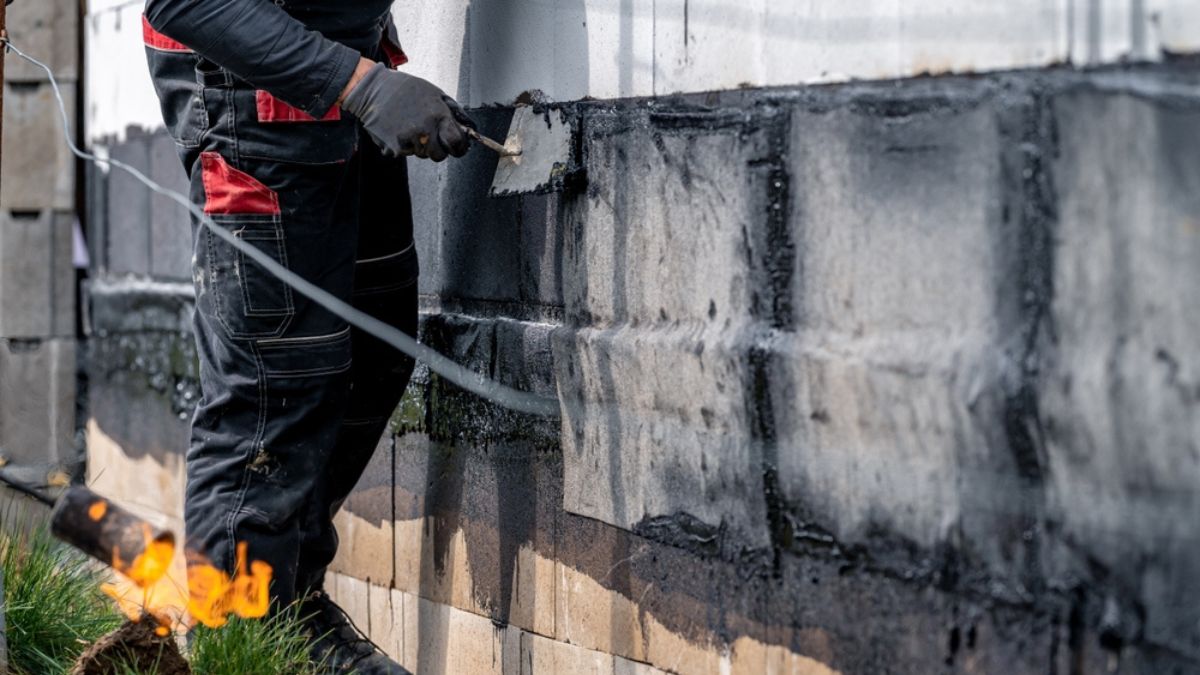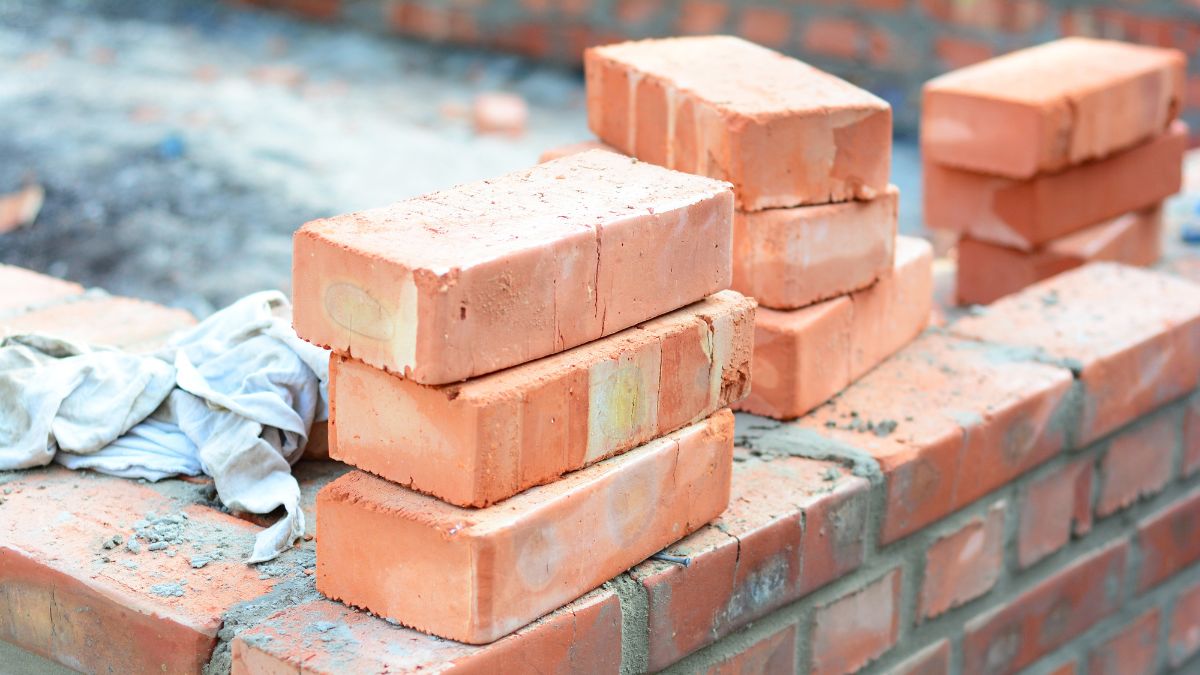You walk across your kitchen with a cup of coffee, ready to start the day. Suddenly, you notice something unusual underfoot. A closer look reveals a network of unusual cracks spreading across your beautiful tile floor. Your heart sinks as you wonder, “Are cracked tiles a sign of foundation problems?”
Cracked tiles alone do not confirm foundation problems but can be an early warning sign of foundation issues. Cracked tiles, uneven, sloping floors, crooked doors, and wall cracks indicate structural problems lurking beneath the surface.
Understanding the signs of foundation problems is crucial for every homeowner. It’s not just about maintaining the aesthetic appeal of your home but also about ensuring its structural integrity. Cracked floor tile issues, if left unchecked, can lead to serious damage and costly repairs.
By the end of this article, you’ll have a solid understanding of foundation problems and the confidence to tackle them head-on. So, let’s dive in and unravel the mystery behind those cracked tiles.
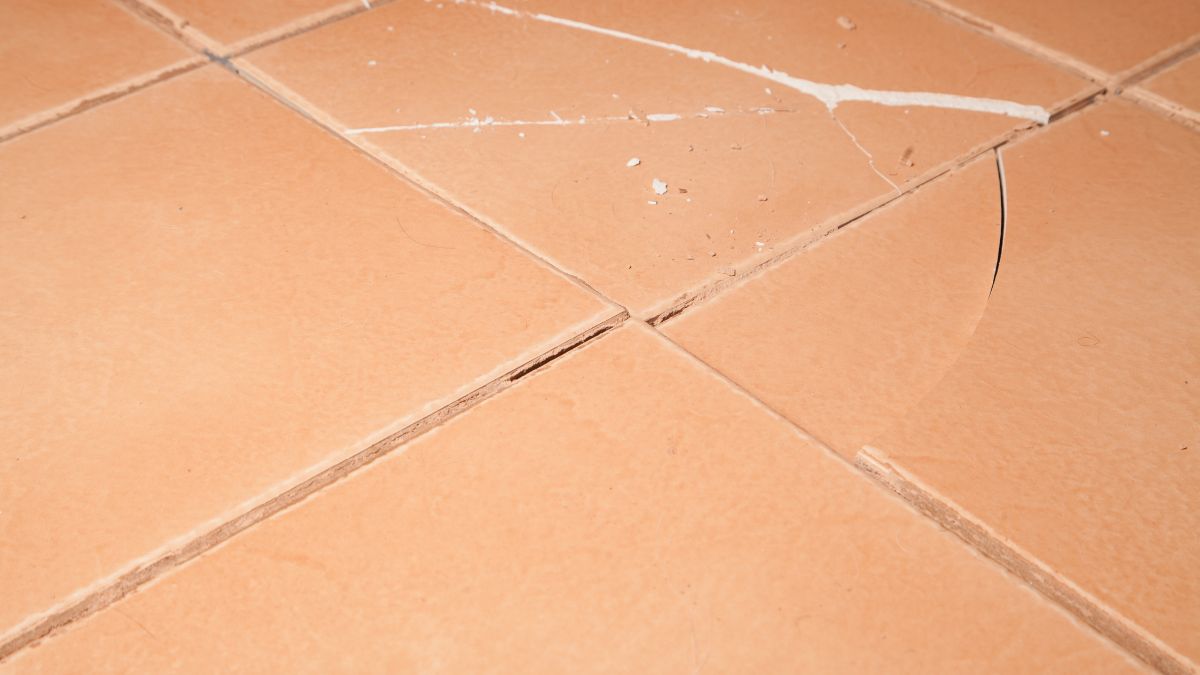
Understanding Foundation Problems
Foundation problems are structural damage that occurs when the very bedrock of your home – the foundation – starts to fail. These problems manifest in subtle cracks in your tiles to doors that refuse to close properly.
Causes of Foundation Issues
You might be wondering, “What causes these foundation problems?” Several factors can contribute to the development of foundation issues:
- Soil Movement: The type of soil beneath your home is not as static as you might think. Changes in moisture levels cause the soil to expand or contract, leading to a movement that can affect the house foundation.
- Poor Drainage: Excessive water near your foundation lead to issues. Whether due to heavy rain or a leaky pipe, water seeps into the soil, causing it to expand and pressure your foundation.
- Tree Roots: Those beautiful trees in your yard cause more harm than good. Tree roots can grow towards your foundation in search of water, causing damage.
- Poor Construction: Unfortunately, not all homes are built equally. If your home’s foundation is poorly constructed, it might be more susceptible to problems.
- Age: Just like us, homes age. Over time, materials can deteriorate, leading to potential foundation issues.
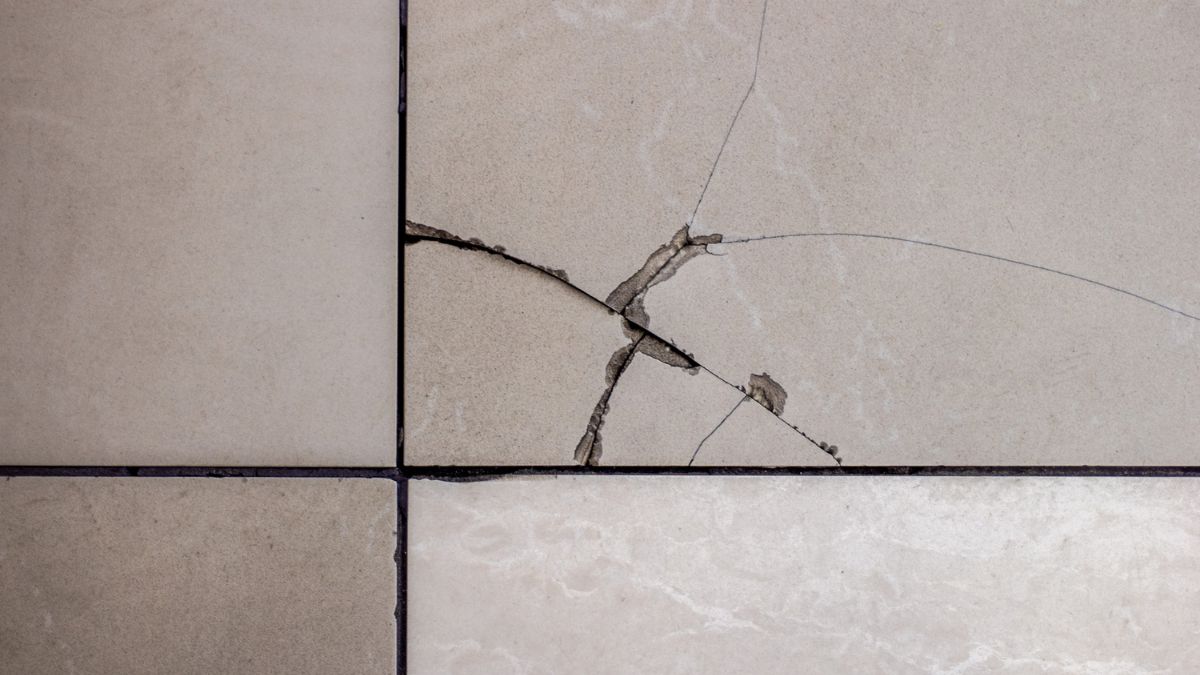
Are Cracked Tiles a Sign of Foundation Problems?
Picture this: You’re admiring your newly installed tile floor, its glossy finish reflecting the sunlight beautifully. Then, one day, you spot a crack. It’s small, almost invisible, but it’s there. You shrug it off, attributing it to wear and tear.
But then, another crack appears, and another. Suddenly, you’re faced with a network of cracks spreading across your once flawless floor. You can’t help but wonder, “Are cracked tiles a sign of foundation problems?”
The answer is they could be. Cracked tiles can indeed be an early warning sign of underlying foundation issues. But before you panic, it’s important to understand the types of tile cracks that may indicate foundation problems.
Types of Cracks in Tile Floors
- Straight Cracks are cracks that follow a straight line across multiple tiles. They are signs of foundation shifts, especially if they run parallel to the foundation’s direction.
- Stair-Step Cracks resemble a staircase, zigzagging across multiple tiles that are signs of foundation troubles, where one part of the foundation sinks lower than the rest.
- Wide and large cracks are more noticeable cracks. They can be a sign of significant foundation movement.
- Random Cracks appear randomly across the floor, not following any specific pattern. While they are due to improper tile installation or natural wear and tear, they also are a sign of foundation issues.
It’s crucial to remember that cracked tiles alone do not confirm foundation problems. They are merely a symptom, a clue that something might be amiss.
Signs in Conjunction with Cracked Tiles
To get a clearer picture, you need to look for other signs in conjunction with cracked tiles. These can include:
- Cracks in Walls: Look for diagonal cracks near doors and windows or vertical cracks and horizontal cracks along the base of interior and exterior walls.
- Sticking Doors and Windows: If your doors or windows are suddenly difficult to open or close, it could be due to foundation movement.
- Uneven Floors: Use a level to check if your floors are uneven. This can be a sign of foundation settlement or heave.
- Exterior Cracks: Check the exterior of your home for cracks in the brickwork or foundation itself.
- Gaps Around Window Frames or Exterior Doors: If you notice gaps around your windows or doors, it could indicate that your foundation is shifting.
Other Signs of Foundation Problems
While cracked tiles can be a telltale sign of foundation problems, there is a combination of symptoms you need to watch out for. Your home has a language that uses various characters to communicate potential issues with its foundation.
Other Signs to Look Out For
Other than the signs above, let’s explore additional signs, so you can better understand what your home might be trying to tell you.
- Bowed Walls: If your walls are bowing or curving, it indicates pressure from soil movement affecting your foundation.
- Sloping Floors: You feel like walking uphill in your home. Floors that slope or sag are a sign of significant foundation issues.
- Cracks in Exterior Brickwork: You’re admiring your home’s exterior when you notice minor cracks in the brickwork or a stair-step pattern.
- Displaced Moldings: Your beautiful crown molding seems to separate from the ceiling or wall. Displaced or cracked moldings are a sign of foundation movement.
What to Do If You Have Cracked Tiles
Here’s a step-by-step guide on what to do if you notice cracked tiles in your home.
Step 1: Don’t Ignore It
It’s easy to dismiss a small crack as a minor issue but remember, it could be a symptom of a larger problem. So, take note of it. Document it. Take a picture. This will help you monitor if the crack is growing over time.
Step 2: Look for Other Signs
Cracked tiles alone do not confirm foundation problems. Look for other signs like wall cracks, sticking doors, uneven floors, or gaps around windows and doors. Remember, your home speaks through signs. Listen to it.
Step 3: Call a Foundation Repair Professional
If you notice multiple signs of foundation problems, it’s time to call in the foundation experts. A professional foundation contractor will thoroughly inspect your home and confirm whether your cracked tiles are due to foundation issues.
Step 4: Understand the Inspection Process
Knowing what to expect is important when you call a home foundation professional for an inspection. The inspector will likely start by examining the exterior of your home, looking for common signs of foundation issues, such as cracks in the brickwork or misalignment of windows and doors.
They’ll then move inside, checking for symptoms like cracked tiles, uneven floors, and wall cracks, and use tools to measure the level of your floors and walls.
Step 5: Discuss the Findings
After the inspection, a professional foundation repair specialist will discuss their findings with you. If they confirm that your cracked tiles are due to foundation problems, they’ll explain the issue and suggest the best action.
Step 6: Make an Informed Decision
Armed with the inspector’s findings and recommendations, you must make an informed decision. Whether it’s proceeding with foundation repairs or implementing preventative measures, remember you’re protecting your home and preserving its value.
Related Reading: Knowing When To Walk Away From Foundation Issues
Preventing Foundation Problems
Here are some actionable tips to help you safeguard your home’s foundation.
Maintain Proper Drainage
Water is a foundation’s worst enemy. Ensure your home’s drainage system is in top shape to prevent water from pooling around the foundation.
Regularly Inspect Your Home
Make it a habit to inspect your home regularly. Look for cracked tiles, wall cracks, or sticking doors. Early detection saves you from costly repairs down the line.
Water Your Foundation
In areas with dry, hot weather conditions, the soil around your home shrinks away from the foundation, leading to problems. Regularly watering the soil around your foundation help maintain its moisture level and prevent it from pulling away.
Plant Trees at a Safe Distance
While trees add beauty to your property, their roots cause foundation problems. Plant trees safely from your home to prevent roots from growing toward your foundation.
Related reading: How To Stop Tree Roots From Growing Under Pavers?
Schedule Professional Inspections
Even with regular self-inspections, having your home professionally inspected occasionally is a good idea. Experienced professionals with decades of experience will easily spot issues you might miss and provide valuable advice on maintaining your home’s foundation.
Summary
To safeguard your home’s foundation, maintain a good drainage system, inspect regularly, water the area around the foundation in dry climates, and be careful with landscaping. Professional inspections can also help catch any potential issues.
Frequently Asked Questions
As we delve deeper into the topic of foundation problems and their signs, it’s natural to have questions. We’ll address some of the most frequently asked questions about cracked tiles and foundation issues.
Does cracked tile mean foundation issues?
Not always. While cracked tiles can be a sign of foundation problems, they can also result from improper installation or natural wear and tear.
When should I be concerned about cracked tiles?
You should be concerned if you notice multiple tiles cracking, especially if the cracks follow a straight or stair-step pattern. If wall cracks or sticking doors accompany cracked tiles, it’s time to seek professional advice.
Is it common for floor tiles to crack?
It is common for floor tiles to crack for various reasons. It could be due to heavy impact, temperature changes, or even the natural settling of your home.
What does multiple cracked floor tiles mean?
Multiple cracked floor tiles could be due to improper installation or heavy impact, or a sign of underlying foundation problems.
Are hairline cracks in tiles normal?
Hairline cracks in tiles are not typically normal and can occur due to improper installation, impact, substrate issues, or thermal expansion.
Takeaway
Cracked tiles might be more than just an aesthetic issue. They could be your home’s way of telling you something is wrong with its foundation. As a homeowner, vigilance is your best friend.
Regularly inspect your home, watch for signs of common foundation problems, and don’t hesitate to seek professional help when needed. So, listen to your home, understand its signs, and take action when needed.


